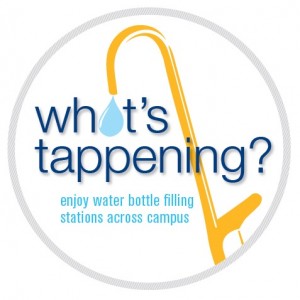 In an effort to be more sustainable, the Campus Auxiliary Services (CAS) board of directors has unanimously voted to discontinue the sale of bottled water on the SUNY New Paltz campus.
In an effort to be more sustainable, the Campus Auxiliary Services (CAS) board of directors has unanimously voted to discontinue the sale of bottled water on the SUNY New Paltz campus.
The decision goes into effect at the start of the 2015-16 academic year.
The new beverage and vending contract will prohibit the sale and distribution of bottled water at campus catered events, retail spaces and vending machines. The distribution and sale of bottled water will still be permitted during emergency situations when no water is available through the tap.
“I think it’s great that the board decided to take a stand on this important environmental issue,” said Steve Deutsch, executive director of CAS.
This decision, noted Deutsch, comes after much consideration and research by the campus hydration committee, comprised of a group of students and staff, to develop a comprehensive strategy to transition the campus from selling bottled water to utilizing water bottle refill stations. Thus far, 34 stations have been installed in 20 buildings across the campus.
“This initiative reduces energy and material resource use during all phases of the bottled water lifecycle, including production, distribution and eventual disposal or downcycling of the plastic bottle,” said Lisa Mitten, sustainability coordinator. “It also localizes campus drinking water from distant watersheds to our local watershed.”
According to Mitten, Facilities Management will continue to retrofit water fountains across the campus with gooseneck attachments—with priority given to high-traffic areas.
New Paltz is green
Over the last decade, the College has undertaken a number of infrastructure improvements and made policy reforms to advance environmental education, research and performance on our campus. The College is a signatory of the American College and University Presidents’ Climate Commitment and in 2010, developed a Campus Sustainability Plan to serve as the blueprint for expanding environmental education and achieving carbon neutrality on our campus. In recognition of these advances, the College has been named to Princeton Review’s “Guide to Green Colleges” for the last several years in a row.

